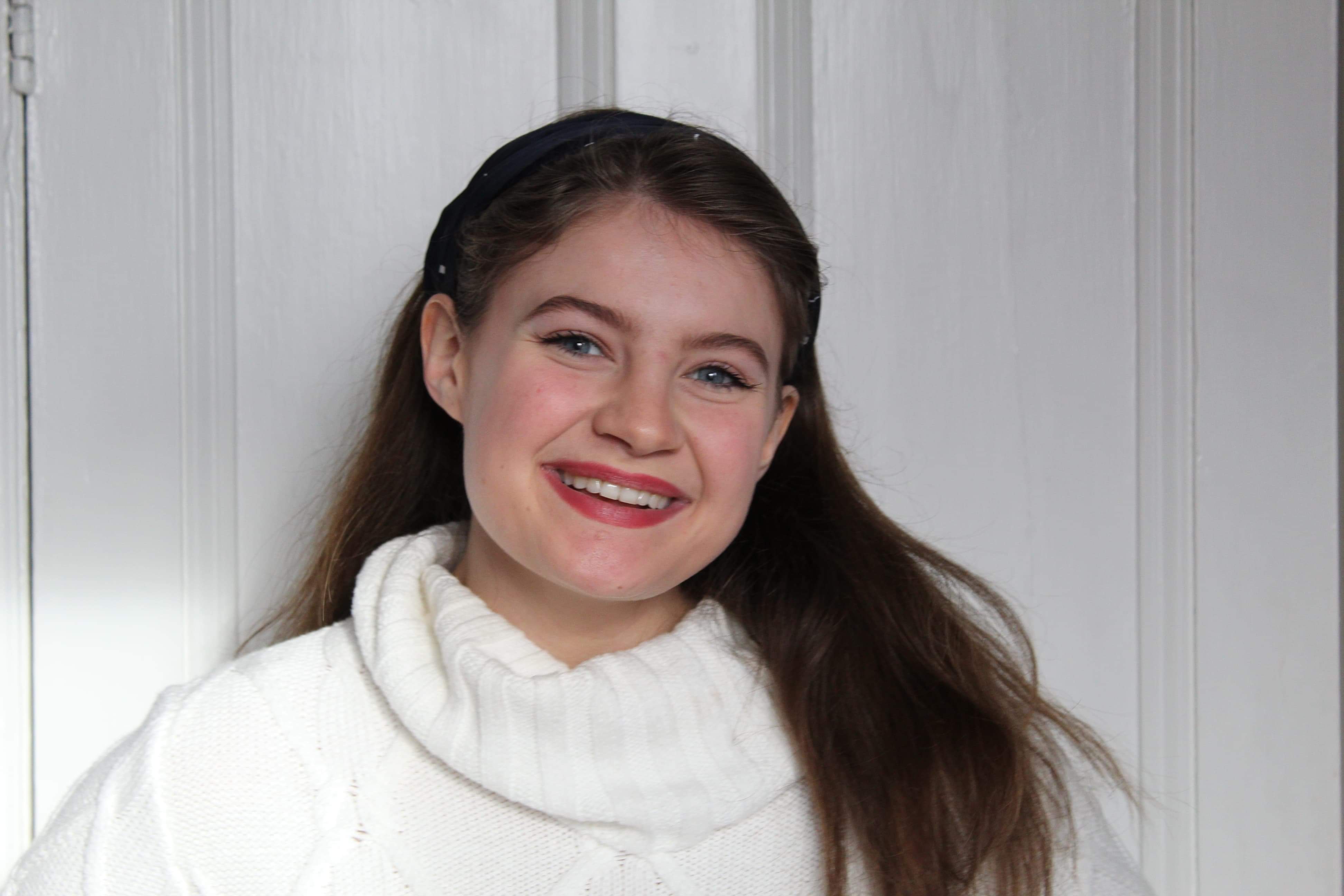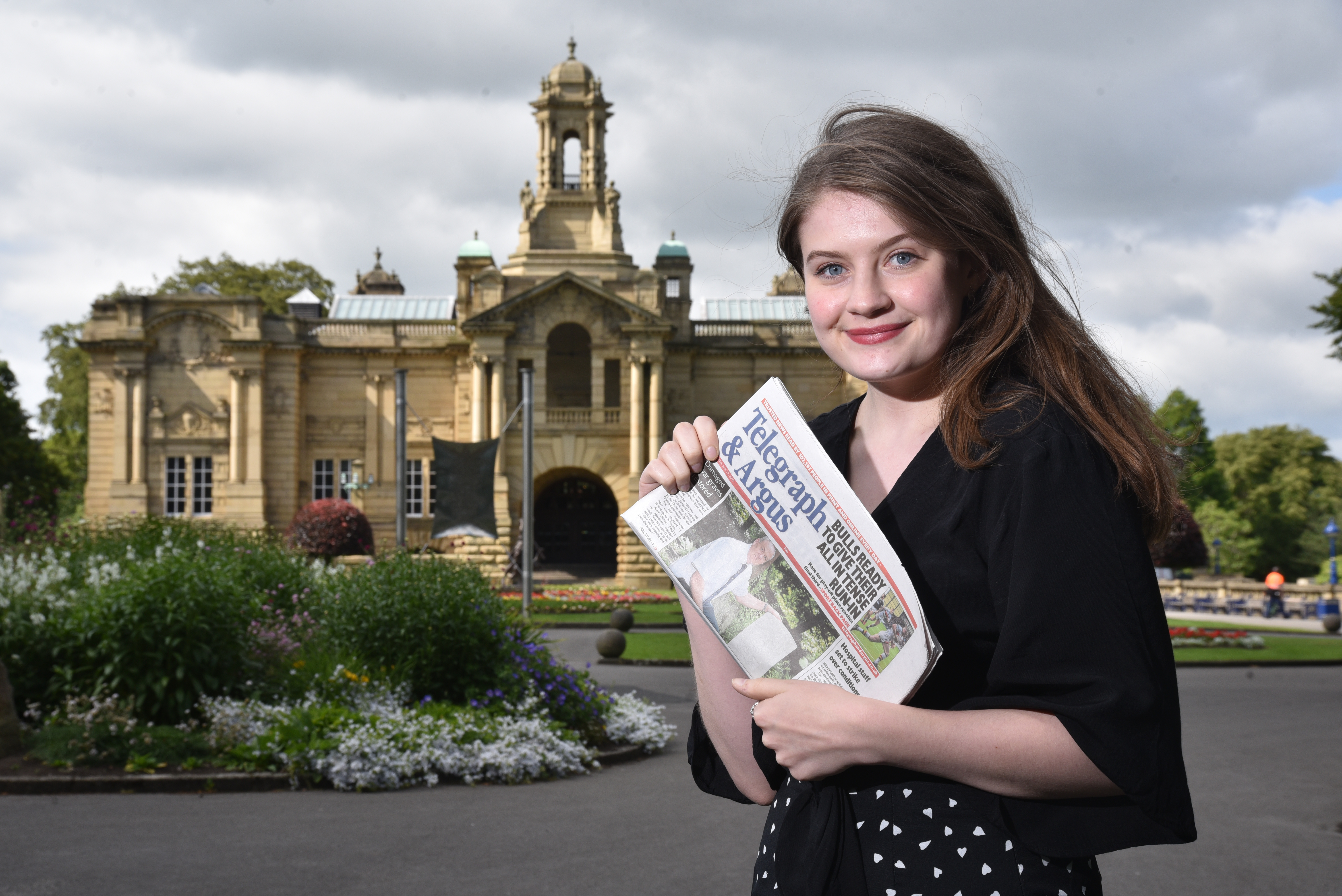International Women’s Day 2021: Natasha Meek, Telegraph & Argus
"I cannot express how much I have learnt throughout my role as a community reporter. What I love is that you’re always growing as you meet people from different walks of life and gain new perspectives every day."
Monday, 8 March 2021 marks International Women’s Day, and the NCTJ is proud to support the campaign, which celebrates the social, economic, cultural and political achievements of women. Throughout the day, we will be showcasing some of the fantastic Community News Project reporters who have been using their roles to support women in their communities.
Natasha Meek from the Bradford Telegraph & Argus shares her story:
Why did you want to be a journalist?
 It always sounds so silly but I remember watching BBC Breakfast before school and seeing Natasha Kaplinsky on the telly. I thought, ‘Oh, we have the same name’ and it made me think that maybe I could do it.
It always sounds so silly but I remember watching BBC Breakfast before school and seeing Natasha Kaplinsky on the telly. I thought, ‘Oh, we have the same name’ and it made me think that maybe I could do it.
I used to make films and little books for fun. I kept watching the news as I grew up – BBC Look North, Calendar and later BBC Radio 4. I wanted to be a part of it. I feel huge passion when I think about the media and my ideas that I’d like to bring into it.
I care about people and I want my career to help change lives in some small way. I want to make everyone feel represented and understood. In particular, I’ve always been a true Yorkshire lass and I want to see the North thrive. We know how good the North is – the people, the architecture, the opportunities, the hardships we overcome and the bright future ahead. I want to play a part in helping the world to see this, especially Bradford. Bradford has captured my heart.
What is your favourite thing about being a community reporter?
 I cannot express how much I have learnt throughout my role as a community reporter. What I love is that you’re always growing as you meet people from different walks of life and gain new perspectives every day. I love when I can go out onto my patch and I’m hopeful that I’ll be able to do that again soon. Bradfordians are so welcoming. They’re happy to talk about their experiences and beliefs. From taking part in a day’s fast and Iftaar for Ramadan to hearing more about Hinduism, the opportunities have been amazing.
I cannot express how much I have learnt throughout my role as a community reporter. What I love is that you’re always growing as you meet people from different walks of life and gain new perspectives every day. I love when I can go out onto my patch and I’m hopeful that I’ll be able to do that again soon. Bradfordians are so welcoming. They’re happy to talk about their experiences and beliefs. From taking part in a day’s fast and Iftaar for Ramadan to hearing more about Hinduism, the opportunities have been amazing.
My Instagram account ‘Women of Bradford’ and my Support Our Student Nurses campaign are also some of my proudest career moments yet.
What does International Women’s Day mean to you?
 International Women’s Day is one of my favourite days of the year. It shows women of all ages, backgrounds and walks of life that anything is possible. We all stand as living examples of different ways you can get into a newsroom and start writing. It makes me feel pride and I truly believe this new generation of journalists is revolutionary. From Manchester’s Dani Cole to the incredible Rianna Croxford, the media is going through a lot of change but for the better.
International Women’s Day is one of my favourite days of the year. It shows women of all ages, backgrounds and walks of life that anything is possible. We all stand as living examples of different ways you can get into a newsroom and start writing. It makes me feel pride and I truly believe this new generation of journalists is revolutionary. From Manchester’s Dani Cole to the incredible Rianna Croxford, the media is going through a lot of change but for the better.
I think there are many reasons to have hope in print and journalism as a whole. When people want to compare the industry to what it was 50 years ago, I hope they realise that the golden era of journalism is actually just beginning.
I also think it’s a really important day to showcase the need for representation in the media – both journalists and the people interviewed. One thing journalism has taught me is that seeing yourself represented is powerful. It could be a Muslim boy from Bradford, a girl who reads a piece by Bristol’s Rema Makena or seeing a reporter in a wheelchair presenting the news. I think International Women’s Day is all about reminding ourselves that we still need to keep rebalancing the scales.
The theme of IWD this year is ‘Choose to Challenge’. In what ways have you challenged inequality or bias?
I hope my journey into journalism has showed people that you don’t need a degree. As someone who struggles with anxiety when it comes to academia, I knew that university wasn’t the right path for me personally. But when I was 17 I felt the pressure to go everywhere I turned. Whether it was being told by a radio station that it only hires people from universities or my college assuming I’d want to go, it was hard to confidently tell people that it wasn’t for me. I felt like a failure and that I was letting all hopes of a journalism career go.
I applied for several apprenticeships across the country and landed an 18-month apprenticeship with JPIMedia. That opened so many doors for me and taught me skills on the job. I feel I’ve been able to find my own voice and approach to journalism. My apprenticeship also gave me opportunities that I could only dream of. I don’t think I’d have got my role as a Facebook community reporter without it.
Do you have any advice for women starting their career in journalism?
Don’t be afraid to walk your own path and believe that you have something new to bring to this industry. Your journey is personal to you. Every single journalist has something that is a unique skill to them. You will have that too.

